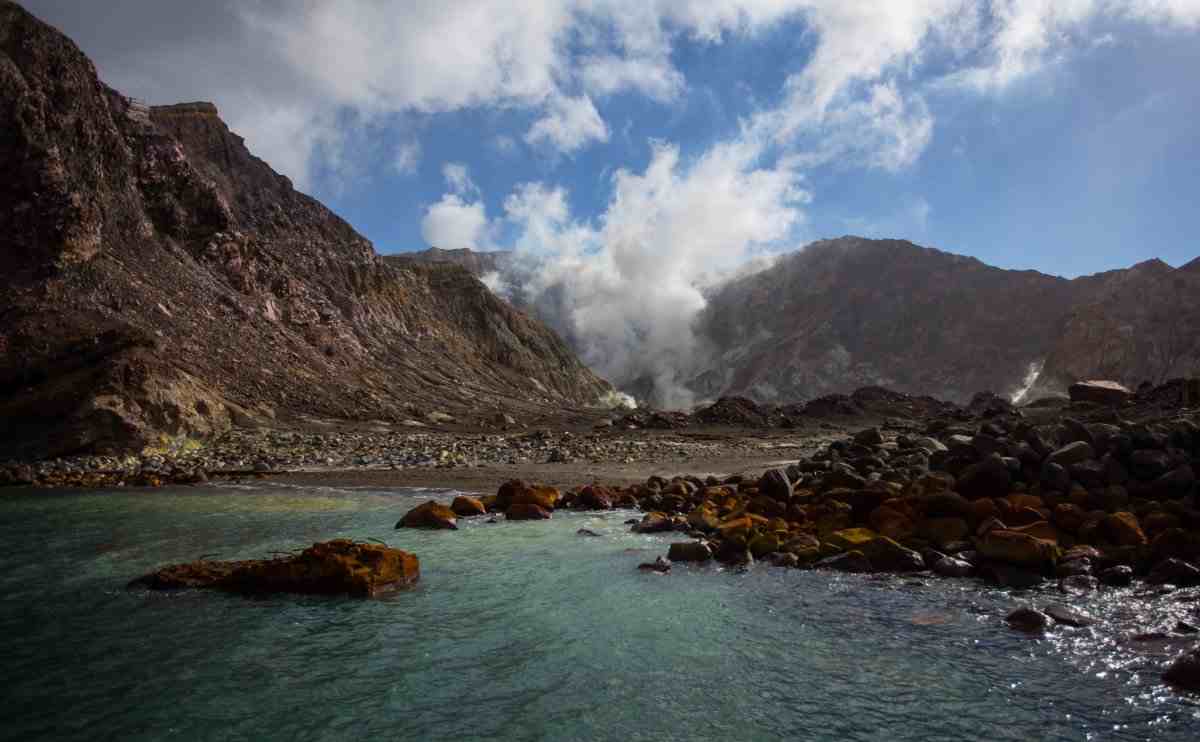Whakaari White Island: we changed the law
For the past 10 years, climbers have fought a losing battle against crag closures, as a lack of legal clarity following the introduction of the Health and Safety at Work Act (HSWA) raised liability concerns for landowners. That all changed recently when ACAT took legal action in the High Court and won.
For the past 10 years, climbers have fought a losing battle against crag closures, as a lack of legal clarity following the introduction of the Health and Safety at Work Act (HSWA) raised liability concerns for landowners. That all changed recently when ACAT took legal action in the High Court and won.
It is difficult to explain the true significance of the Whakaari case – not just for one crag, but for every crag in New Zealand. On farms, forestry land, and public land. And not just for rock climbing. By changing the law, we helped protect the wider Kiwi birthright of access to the great outdoors.
Whether for tramping, hunting, fishing or mountain biking, all these activities rely on the goodwill of landowners who ask the reasonable question, “If I let you onto my land and you have a recreation-related accident, could I be liable?” Now, first the first time in a decade, we can clearly say to most landowners, “No.”

Whakaari White Island. Photo: Edwin Sheppard
Why was the Whakaari case so significant for recreational access?
The tragic 2019 eruption on Whakaari/White Island led to WorkSafe's prosecution of multiple companies including Whakaari Management Ltd (WML), the landowner, which was subsequently convicted in the District Court. This was the first time in NZ that a landowner had been convicted under health and safety laws in respect of recreational activities.
Crag owners, including the Auckland Grammar School, told us that in their view the case increased their risk of liability for recreational accidents, reducing their appetite to permit public access to their land.
How did we change the law?
When WML appealed to the High Court, ACAT jumped on the opportunity to intervene. With pro bono support from top barristers including John Dixon KC, we sought to bring the case’s relevance for recreational access to the judge’s attention.
ACAT's core argument was that responsibility for health and safety in recreational activities should sit with the people doing or providing the activity, not with landowners who merely allow access.
In a significant victory for recreational access, the High Court agreed with ACAT’s submissions. The Court's judgment clarified the law, stating that merely providing access to land does not make a landowner responsible for managing the risks of recreational activities or liable for accidents.
This is a game-changer for recreational access, as we can now reassure most landowners that they are not taking on a risk of liability by allowing people onto their property. It will help to prevent further closures, and we are chipping away at reopening closed crags.
Support our ongoing efforts
Whakaari was a pivotal outcome but our work on liability issues is not done. Right now, ACAT is working hard to push further law reform through the government to ensure these law changes stick, create resources to empower climbers with legal knowledge so everyone can be an access advocate, and reaching out to landowners who may still perceive liability to be a potential risk.
This is only possible because of community involvement. Your support matters and monthly or annual donations make a real difference. When you donate to ACAT, you're not just donating to a charitable trust, you’re joining a community-wide effort to keep our climbing areas open and thriving for generations to come.
Sign up for a monthly or annual donation today and join the movement.